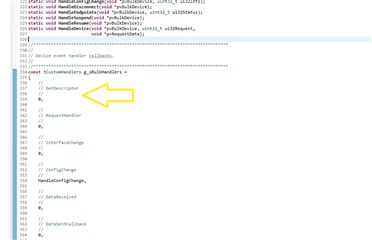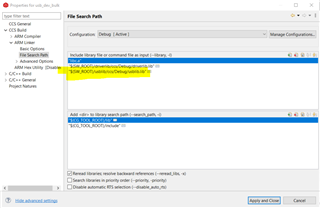您好!
我有一个适用于 TM4C123GXL launchpad 的 USB 批量传输示例的修改版本、该示例现已启动并正在运行。 我看到 MCU 成功使用了 Microsoft OS 字符串描述符、需要处理此请求以加载 WinUSB 驱动程序。 我想知道添加"描述符"处理程序来处理此自定义字符串描述符的最佳方法是什么。
我在如下所示的 usbdbulk.c 文件中看到一个潜在选项、始于第329行:

我问的是,因为所有其他的字符串描述符处理工作正常,不想破坏它们。 此外、我将该文件存储在本地项目中、因此我可以修改在 usbulbulk_structs.c 中无法修改的内容 理想情况下、我不会修改任何更低级的驱动程序代码、因为它已全部编译完毕(我认为是)。 我已经尝试在 usblib 驱动程序文件夹中修改了源代码、但没有进行任何更改-我假设这个代码是链接的、而不是每次在 CCS 中编译/编译时都编译。
任何关于定制(Microsoft OS 字符串描述符)字符串描述符处理程序的好位置的方向都会非常感谢!


